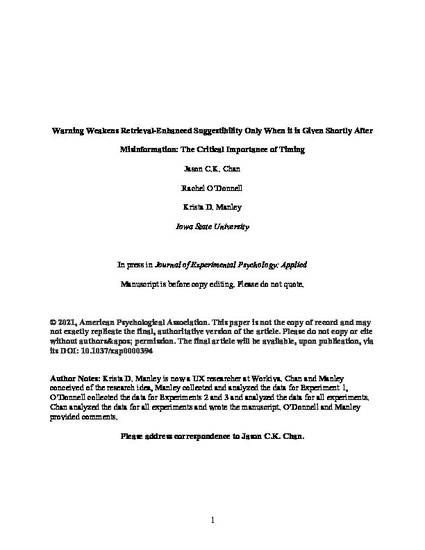
Recalling details from an experienced event can sometimes exacerbate eyewitnesses’ susceptibility to subsequent misinformation. This finding, known as retrieval-enhanced suggestibility (RES), can be eliminated when participants are warned about possible inaccuracies in the misinformation source (Thomas, Bulevich, & Chan, 2010). In three experiments, we investigated whether this warning benefit persists across delays. When the warning was issued shortly after participants were exposed to misinformation, it inoculated participant witnesses against RES, regardless of whether the final memory test occurred immediately or 48 hr after the warning. However, the warning lost its effectiveness when it was delivered 48 hr after participants were exposed to misinformation. These results applied to both recognition memory and the confidence-accuracy relationship. We considered these data from the perspective of temporal distinctiveness, and we argue that a warning serves a similar function to a forget cue in the directed forgetting paradigm.
Available at: http://works.bepress.com/jason_chan/36/

©American Psychological Association, 2021. This paper is not the copy of record and may not exactly replicate the authoritative document published in the APA journal. Please do not copy or cite without author's permission. The final article is available, upon publication, at: 10.1037/xap0000394. Posted with permission.